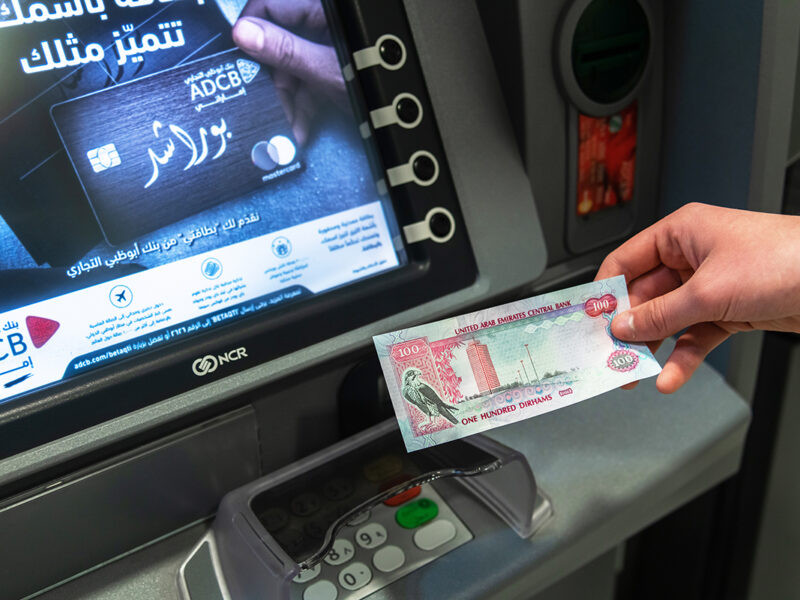Jean Davis stands outside a branch of Northern Rock Plc in the London suburb of Golders Green and wonders how she’s going to keep her inheritance safe as banks topple across Europe.
The former public relations adviser, who declined to give her age, said she’s spread the money across 25 different accounts to ensure each remains below the limit of $62,000 that the UK’s Financial Services Compensation Scheme guarantees to protect.
“I’ve been slicing and dicing up to the limit but now I’ve changed to asking what has the greatest security,” said Davis.
“I wish the British government would guarantee deposits. If they don’t, then I’m virtually certain I’ll put my money into Ireland.”
People are genuinely frightened for their savings. To an extent it’s irrational because no one’s lost any money but people are worried theirs will be the unlucky bank.
Britons are increasingly nervous about their savings after the government brokered a takeover of HBOS Plc, the country’s biggest mortgage lender, and seized control of Bradford and Bingley Plc’s mortgage unit after credit markets froze.
As governments across Europe bail out banks, Ireland has given savers a guarantee that all deposits are safe. By contrast, Britain protects deposits of as much as $62,000, a ceiling it plans to raise to $87,600.
The UK guarantees all savings only at Northern Rock, the mortgage lender nationalised in February.
That’s made the Newcastle-based company’s deposit accounts so sought-after that it last week withdrew the most popular products, following what Northern Rock called a “sizeable inflow, particularly in recent days.”
Gillian Gold, 63, said she’d phoned Northern Rock last week and was told she could invest money inherited from her mother in a fixed-rate bond that earns 5.75 percent.
After travelling 11 miles to her nearest branch in Golders Green that afternoon, she learnt the deal was off. “I’m fed up with their messing everyone around,” she said, standing outside a branch of the bank. “It’s going into Allied Irish now.”
Allied Irish Banks Plc is covered by the Irish government’s deposit guarantee, along with Bank of Ireland Plc, Anglo Irish Bank Corp, Irish Life, Irish Nationwide Building Society and the Educational Building Society.
The British Bankers’ Association, whose members include Barclays Plc and HSBC Plc, said the Irish plan will distort competition. UK Prime Minister Gordon Brown is pressuring authorities in Dublin to prevent Irish institutions using the guarantee to lure business from the UK, the Financial Times reported, without citing anyone.
A spokesman for Brown’s office said UK officials have been in contact with Irish counterparts, without providing specifics.
“A lot of money left the Irish banking system, so some of it is flowing back in,” Irish junior finance minister Martin Mansergh said in an interview with RTE radio last week.The British government’s guarantee is limited to one deposit of up to $62,000 for each bank. So if two banks are owned by the same company, depositors with accounts in both banks are guaranteed $62,000 instead of $123,000.
Gold said the dwindling number of UK retail banks means it’s becoming more difficult to ensure her money is safe.
“It’s a nightmare for the normal person,” she said. “You have to keep moving it around.”
For Helen Ford, a 60-year-old retiree, safety is the “Number one priority’’ after her husband died a year ago, cutting off her source of income. “Whereas before I used to look at interest rates, at the moment it’s all just about not losing more than I already have,’’ she said, standing outside a Post Office in north London’s Muswell Hill.
Ford had just transferred money from Halifax, part of HBOS, to her account at the Cooperative Bank because she believed it would be safer. HBOS agreed last month to be bought by Lloyds TSB Group Plc for about $20bn in a deal brokered by Brown.
The bank mergers and government bailouts in the recent weeks “made me feel very anxious and a bit panicky because I have to sort it on my own,” Ford said, before heading to open a new account with HSBC Holdings Plc. “I can’t take a chance so I’m going to at least separate my savings.”
Personal finance websites say savers’ nervousness is widespread. The Moneysupermarket.com financial-services price comparison website says there was a three-fold increase in visitors looking at Irish bank accounts since the Irish government said on September 30 it would guarantee deposits.
“People are genuinely frightened for their savings,” said Ian Williams, a spokesman for the website. “To a certain extent it’s irrational because no one’s lost any money but people are worried theirs will be the unlucky bank.”
Visitors to Moneyfacts.co.uk, another price comparison Web site for personal finance, increased by 66 percent last month compared with August.
“Consumers are standing back and saying, ‘Can I trust my bank?’” said Darren Cook, a spokesman for Moneyfacts Group. Hundreds had been asking about setting up Irish bank accounts, he said. “They’re all coming through to the savings site.”
Back in Golders Green, Jean Davis said she, too, is thinking of alternatives to cash. “For the first time, in the last few days I’ve been tempted to buy gold,” she says. “I’m inexperienced, but it’s a real possibility.”
Former wine merchant Tony Johnson, 59, said he keeps only “a couple of thousand” pounds in a bank account.
Most of his savings are in bottles of wine stored in warehouses across the country. A decade ago he bought a case of 1982 Chateau Latour for $2600. Now it’s worth $17,600, he said.
“What’s the point of saving, he asked. “I get a much better return from wine than from a bank.”
This article is courtesy of Bloomberg.








